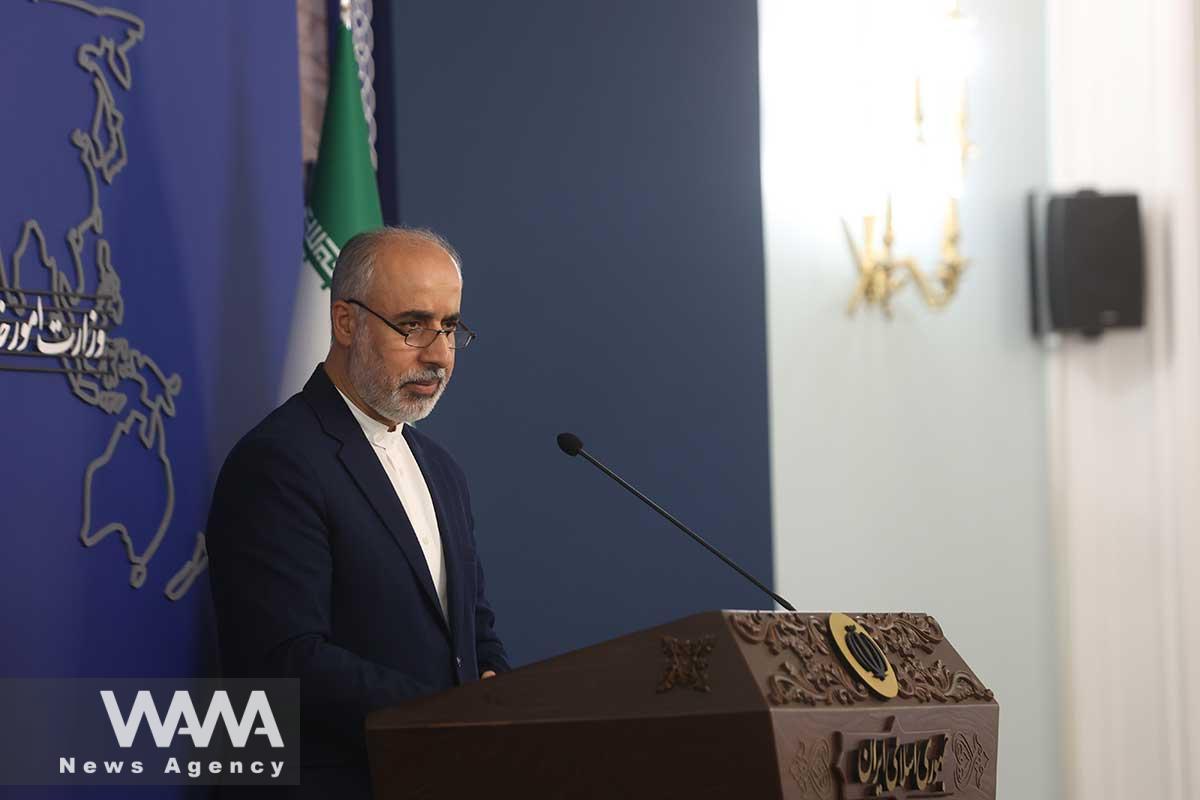Iran is committed to protecting its naval rights and will not tolerate any infringements
WANA (AUG 21) – The good news from the past few days is that Iran and the United States agreed to exchange prisoners and release Iranian funds held in South Korea. However, the agreement has not been finalized yet.
The Iranian side views the Iran-US deal as promising and hopes that releasing Iran’s blocked money and prisoners’ exchange will build trust for discussing other disputes.
“According to the information up to this stage, based on the process of the agreements, the process is going well, and we hope that this agreement (exchange of prisoners and release of blocked money) will be fully implemented within the set time limit, and the necessary basis for building the trust for potential progress in other fields will be considered as well,” the spokesman of Iran’s Ministry of Foreign Affairs, Nasser Kanani, announced this issue today, August 21, at their weekly news conference.
The two sides have agreed to a two-month period to resolve the issue. The lack of trust between the nations sometimes complicates matters and prevents good news from being celebrated for long periods.
Regarding direct negotiations with Washington, Tehran still insists on its previous position of “no direct talks.” Iran’s Foreign Ministry spokesman repeated this policy today: “There is no plan for direct talks between the two countries’ officials on the sidelines of the UN General Assembly and anywhere else.”
Iranian officials believe that the experience of direct negotiations with the Americans in the past years has not been beneficial, and more importantly, the American politicians have proven that they have practically no commitment to negotiations between countries and international agreements.
Since the unilateral withdrawal of the United States from the JCPOA, Tehran has banned any direct negotiations with American officials at any level to punish the United States. Now, all talks between the two countries occur in a mediator’s presence.
Another conflict between Iran and the United States is the presence of American military forces in the waters of the Persian Gulf and the seizure of Iranian oil vessels in other international waters. This conflict has been going on for a long time in the Persian Gulf and other seas. Energy security is very vital for the West and Americans. Iran also believes that the presence of foreign forces can never bring security to the Persian Gulf.
In recent years, Iran has responded quickly to the seizure of its ships anywhere in the world by immediately seizing a ship or ships in the Persian Gulf to demonstrate its power. This quick reaction has caused fear among other countries to the point that no one is willing to buy oil from Iranian ships that have been seized Because they know that Iran will immediately punish the nation that accepts Iran’s captured oil in another way and at the right time or the ship of that country or countries in the waters of the Persian Gulf will be seized by the Iranian Navy. ” Actions regarding invasion to oil tankers carrying Iranian oil is a clear example of sea piracy and a clear example of the violation of international regulations and violation of Navy’s transport regulations, and Iran will not remain idle about their rights.” Iran’s Foreign Ministry Spokesman Nasser Kanani said.
- WANA Tehran_Newsroom













User comments